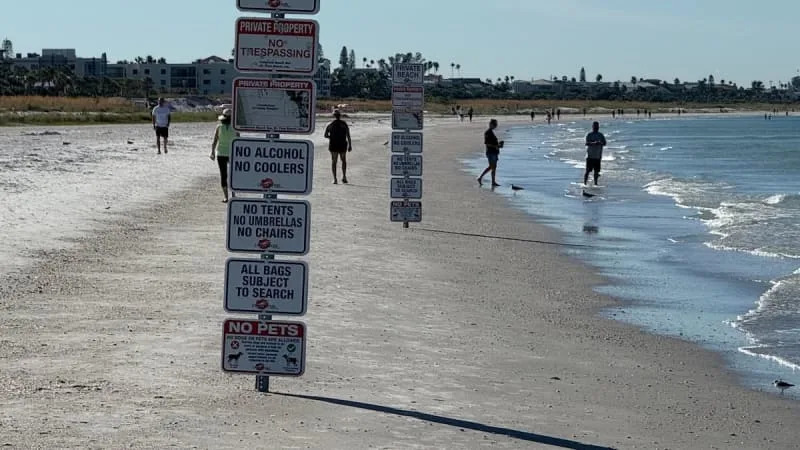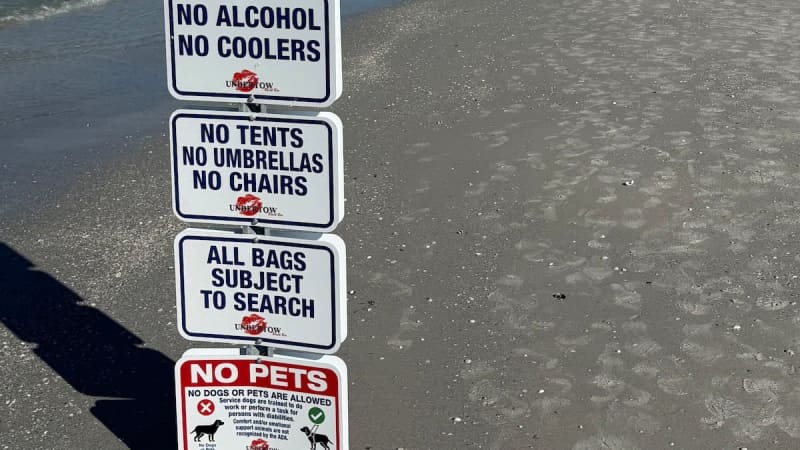“No trespassing” signs posted outside a popular St. Pete Beach bar have sparked a debate among community members about who owns the beach. Now city and state officials are getting involved to settle the score.
The Undertow, located at 3850 Gulf Boulevard, put up several signs at the edge of the shoreline last week informing beachgoers that a section of sand behind the bar is “private beach.” According to the signs, this means no alcohol, coolers, tents, umbrellas, chairs or dogs are allowed on the property and all bags are subject to search.
Photos of the signs planted in wet sand quickly surfaced on social media, garnering angry comments from people questioning whether the bar can police the beach, especially so close to the water’s edge.
The Florida Constitution protects public access for all land below the mean high water line said Thomas Ankersen, a professor emeritus at the University of Florida Levin College of Law and emeritus director of the university’s Conservation Clinic.
“The line itself is based on an average of high tides over an astronomical cycle, but it is not legally determined until it is surveyed,” Ankersen wrote in an email.
Land above the line can be privately owned in some cases.
Timothy Weber, an attorney representing The Undertow said the bar commissioned a professional survey and had it approved by the Florida Department of Environmental Protection.
“The signs are posted on the Undertow’s property above the mean high water line,” he wrote in an email. “That line is different from what the wet sand line may look like on any given day due to natural forces of erosion and accretion, and the like.”
The Florida Department of Environmental Protection did not immediately respond to a request for comment.
Ralf Brookes, the interim city attorney for St. Pete Beach, said the city is working to preserve public use of the land in question.
“We don’t want to make it so that people have to turn around or walk in the water to keep going down the beach,” he said.
On Wednesday, code enforcement ordered the bar to remove the signs by Monday or face potential fines. Brookes said St. Pete Beach is also coordinating with the Department of Environmental Protection to try and verify where the mean high water line is and whether The Undertow is authorized to block public use.

Regardless of where the line is, Brookes said pedestrians should still be allowed to walk the beach under Florida’s customary use doctrine.
That rule allows public beach access even in privately-held areas if there has been historic and continuous usage “since time in memorial,” Ankersen wrote.
Earlier this year, the state Legislature repealed a previous law that made it more difficult for municipalities to enforce customary use.
“It’s a big deal for the citizens and public who go to the beach,” Brookes said, adding that the city’s dispute with The Undertow, “could be a test case for the entire state of Florida.”

